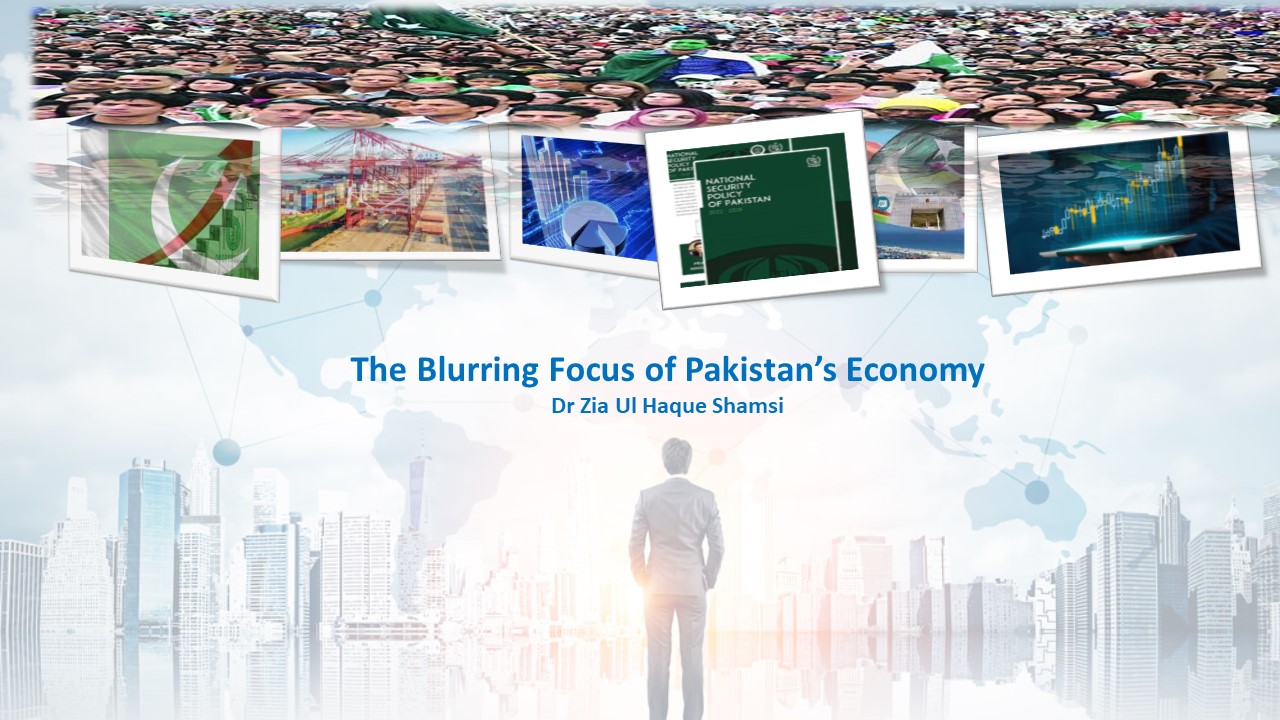The month-long debate between self-centred politicians and the pseudo-intellectuals on the shifting paradigms of Pakistan’s policies from geo-strategy to geo-economics has done little for the people of Pakistan. Rather, it has further confused them as far as the focus of Pakistan’s economic direction is concerned, because it directly affects each citizen’s well-being.
To begin with, somebody should explain why this debate was started because Pakistan’s geographical location has always been viewed as extremely important by the ancient powers in the region. Moreover, Pakistan’s topographical features and climatology is also extremely suitable for becoming an economic corridor for the powers in the north and west, with warm water’s coastline in the south.
Pakistan’s first formal National Security Policy (NSP) is citizen-centric and rightly focuses on human security of which personal security and economic security are the two critical elements. Moreover, Pakistan’s geo-strategic environment has not changed for the better. Kashmir, Siachen, and Sir Creek remain unresolved, and the two nuclear neighbours do not talk to each other face-to-face since India unilaterally included Jammu and Kashmir in its Union abrogating Article 370 and 35A on 5th August 2019. Afghanistan also remains unstable and chaotic even after the complete withdrawal of foreign troops. The people of Afghanistan are made to suffer in the chilling winters for food, clothing, and shelter, primarily because they supported the Taliban in their struggle to free them from foreign occupation. While the world’s most advanced armed forces could not defeat Afghans in over two decades of war, it is time for the economically developed states to take revenge for their military defeat from the people of Afghanistan by starving them to death by withholding the release of funds and even humanitarian aid.
Therefore, instead of changing the narrative from ‘geo-strategy’ to ‘geo-economics’ and creating an unnecessary debate that our priorities have shifted without any change in the geostrategic environment, policymakers should have removed the blurriness from our economic direction.
I am not an economist but let me propose a terminology with a brief explanation, which may create a healthier debate on the subject and may also help remove some of the doubts created in the minds of the people about the shifting of government priorities from ‘geo-strategy’ to ‘geo-economics’, which is not the case, in my opinion.
Pakistan’s economy should focus on its immensely hard-working, young, brave, and dynamic human resource, and therefore may be referred to as ‘Humonomics.’ Let me explain, I am not referring to human security, but an economy that is focused on human resource development. The first and foremost requirement of each and every development plan must be to have a closer look at its needs and contribution to the development and progress of the people of Pakistan. For instance, planning and developing a new city with a focus to create jobs, accommodation, and attract investment, may first pronounce that this project is aimed at training and development of the people and will have x, y, z number of educational, health, and training institutions.
Human security in its entirety cannot be ensured without focusing on Humonomics, because an economy which does not care for the majority of its population cannot grow and sustain. Prime Minister Imran Khan often refers to China’s development. China lifted 800 million people out of poverty in the last 40 years, primarily because it focused on its people first. China is going to become the world’s largest economy by 2028, and now it has enough resources to invest in its military and space to challenge for superpower status in the coming decades.
If Pakistan’s economic managers focus on building educational institutions, vocational training centres, health facilities, sporting avenues, industrial and agricultural research and development centres, technology parks, and knowledge cities as public priority projects, then rail, road, energy, and tourism infrastructure would automatically attract private investment.
Although not 100% apt, it is necessary to give the examples of Libya, Iraq, Egypt which were fairly developed as far as infrastructure was concerned, but perhaps not enough effort was put to empower the people to stand with their respective governments in times of crisis.
No nation can sustain development and prosper without extensive investments in its people, especially in a country like Pakistan which is blessed with abundant natural resources and a young and hardworking population of over 220 million. While I proudly write that Pakistan is a nuclear weapon state with one of the best Armed Forces in the world, exports a variety of agriculture, and industrial products and services; it pains me to mention that it does not rank well on the Human Development Index.
The question remains as to how we reached this point of regression, and perhaps the answer lies in systematically ignoring our people for over a prolonged period and investing only in security infrastructure and showcased projects.
It is never too late. Let us change to ‘Humonomics’ so that citizens of this great land are not confused between geo-strategy and geo-economics. The idea may not be new, but the terminology may trigger a relatively more informed debate.
Dr Zia Ul Haque Shamsi is the author of ‘Nuclear Deterrence and Conflict Management Between India and Pakistan’ (2020) and ‘South Asia Needs Hybrid Peace’ (2021). He is presently working as Director at the Centre for Aerospace & Security Studies (CASS), Islamabad, Pakistan. The article was first published in Daily Times. He can be reached at cass.thinkers@gmail.com.
Image Source: Etfa Khurshid Mirza




